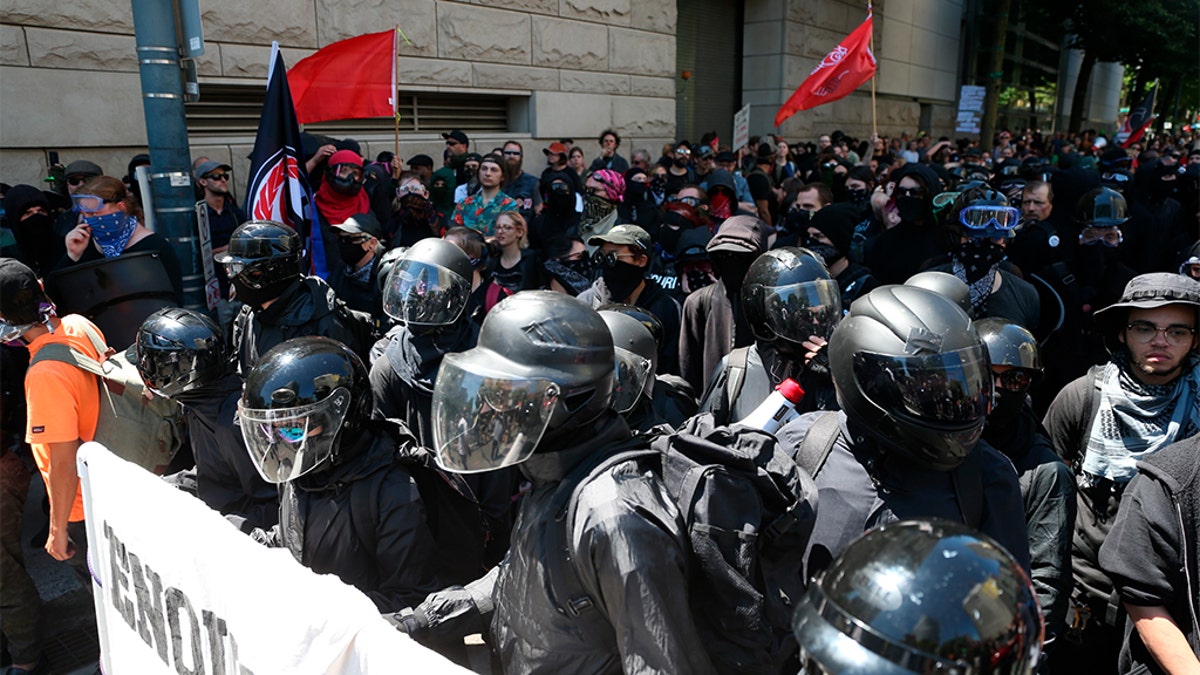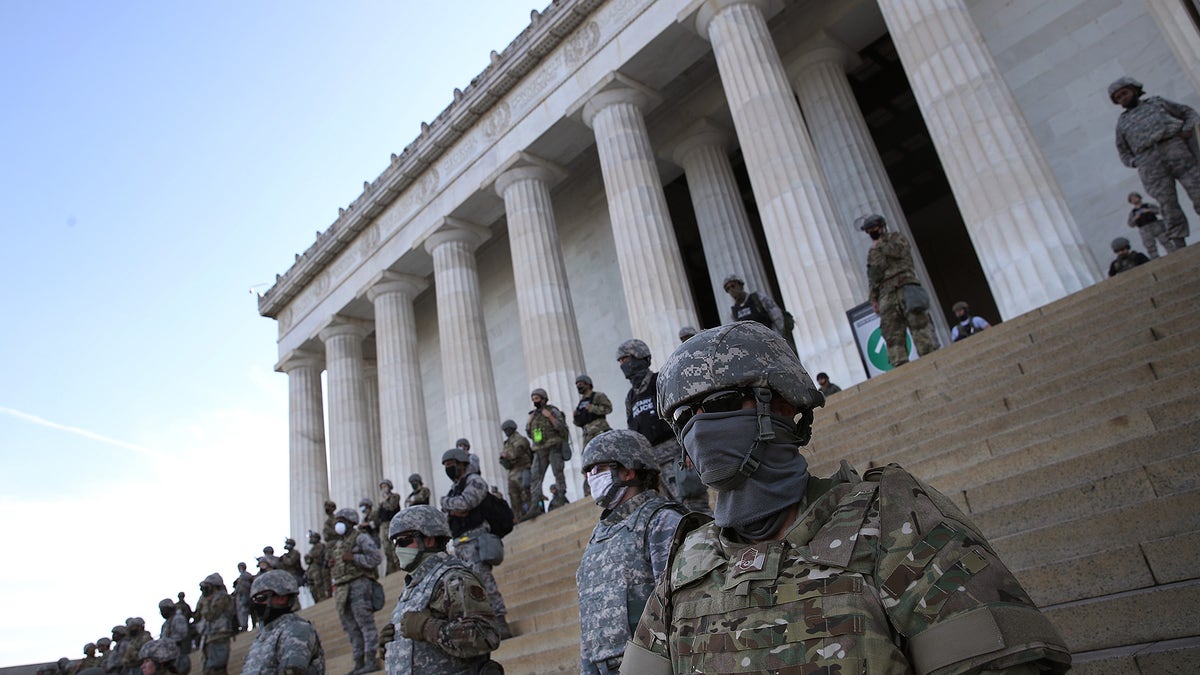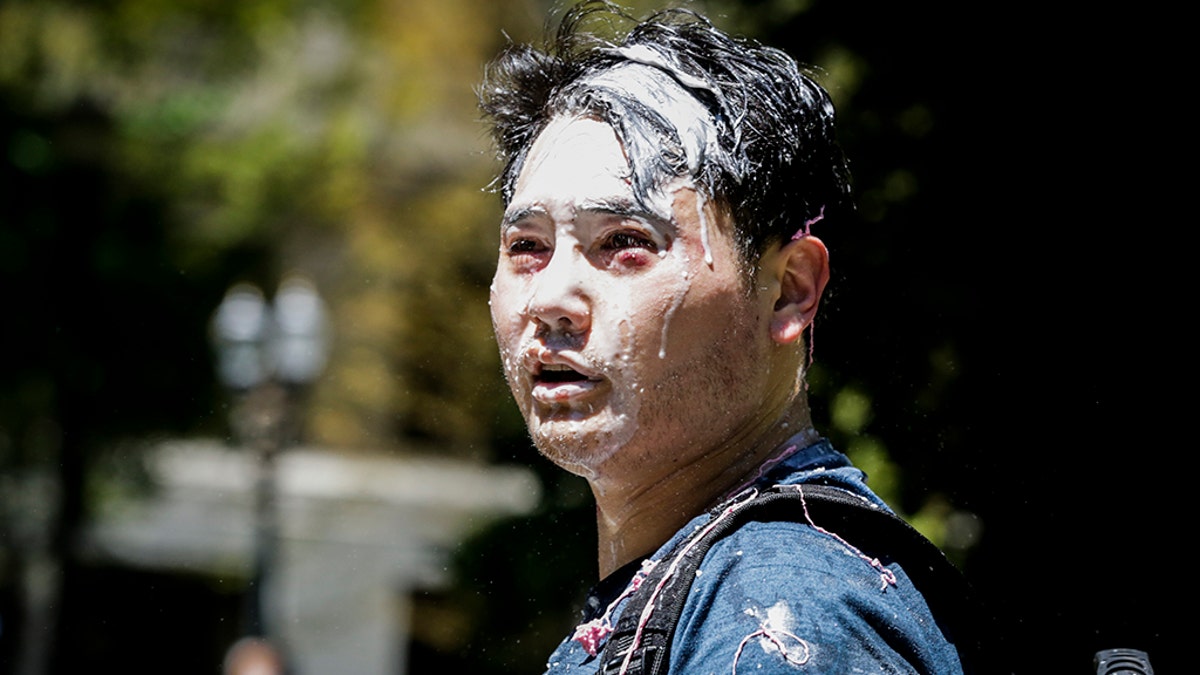In the spring of 2019, a small – but ever-growing – group of activists met weekly in a lecture theater in New York City's Lower East Side, not far from the buildings of NYU but with no affiliation to the institution. A flyer of "rules" was disseminated, including a stipulation that "white straight dudes" should speak last.
While mostly young students deeply invested in social justice causes attended, the group also included those who taught or guest-taught at universities, and some brought their young children. Others explained that they hailed from "the Colonial State of California" and that was the cause that drove them. Another was a former soldier who had grown deeply disillusioned with U.S. wars and persecution of cultures and minorities abroad. People bemoaned the wealthy having "hijacked" New York City's illustrious art gallery scene. There was anger expressed over police brutality. A few wanted to spotlight the Palestinian cause.
There were references to Antifa, though most rejected any labels.
There was talk about university education and work, but little was asked about individual backgrounds. But, following the recent spate of riots that rocked dozens of cities across the country, in the wake of George Floyd's death in Minneapolis while in police custody, over 11,000 people have been arrested.
Generally, Antifa members take on a multitude of actions they perceive to be authoritarian, homophobic, racist or xenophobic.
Discussions were benign, but groups splintered away to brainstorm further "solutions," and any hints of violent activities were limited to only a small and well-vetted group. Communications then turned to Signal, Telegram and other encrypted apps for coordination.
PROFESSOR SAYS LIBERAL COLLEGE CAMPUSES COULD BE BREEDING GROUND FOR ANTIFA IDEOLOGY
The organized nature of much of the violence has drawn attention, with President Trump and Attorney General William Barr pointing fingers at the shadowy outfit and to what extent universities play a part in recruiting, urging or merely turning a blind eye to Antifa's presence on campus.
"Universities are the ideological incubators of Antifa in the U.S. Officially most U.S campuses do not have any policies that endorse Antifa explicitly," Eoin Lenihan, a Stuttgart-based security and research analyst whose work is focused on online extremism, told Fox News. "They do however tacitly or unwittingly support Antifa by employing teaching staff who are sympathetic to or are actual members of the group, by allowing the group to host events on their premises and by offering an abundance of courses in the social sciences that have their foundation in revolutionary Marxism, which do not offer sufficient evaluation of the course content to train students to think critically."
Reporters from the higher education-focused, conservative website Campus Reform claimed to have spotted Antifa openly recruiting on the University of Florida campus last September, and published a flyer that apparently was being distributed to usher in new arrivals and invite prospects to attend a "Radical Rush" event held by the "Gainesville Antifascists." At the time, the University of Florida denied any knowledge of them being on campus.
"Antifa chapters around the country grow their movements and test their tactics on college campuses. College students are especially receptive to their radical ideology because of the anti-capitalist, anti-cop and anti-American rhetoric they're often exposed to in class," said Cabot Phillips, editor-in-chief, CampusReform.org. "What's taught in classrooms on many college campuses essentially softens students up to the ideas of Antifa."
He said there's a constant competition among students to prove to one another how "woke" they are, and partaking in the "social justice" movement is a quick way to gain credibility and climb the social hierarchy.
Some Antifa critics say it's the ideology of violence being circulated on college campuses, often on the taxpayers' dime at public institutions, that is more a cause for concern than enabling groups to meet or turning a blind eye.
"Professors often glorify Antifa as a group of noble freedom fighters," Phillps continued. "We've reported how professors have promoted their events, called on students to donate to bail funds for members arrested at riots, and even declared their allegiance to the group itself."
Even the destructive elements brought with it some seeming justification from high-level academics.
"The violence is being done by the police themselves. In many registers, as we certainly see from last night, it's the police themselves who are rioting and attacking people and attacking property," Steven Thrasher, a teacher at Illinois's Northwestern University, told NPR. "The rebellion against the police station itself (in Minneapolis), as I read in Slate, made sense because the police are the ones that are enforcing an extremely unfair social order."
Moreover, Sarah Parcak, an Egyptologist and University of Alabama professor, raised red flags earlier this month amid the heat the Floyd unrest with tweets purporting to advise protesters on how to bring down Confederate monuments in the South, accompanied by diagrams.

Multiple groups, including Rose City Antifa, the Proud Boys and conservative activist Haley Adams protest in downtown Portland, Ore., Saturday, June 29, 2019. (Dave Killen/The Oregonian via AP)
However, many experts underscored that university involvement in the Antifa movement is often not straightforward or blatant. The group doesn't have a formal leadership or headquarters, although there are local "organizers" and those who take the reins more than others. Generally, Antifa supporters are defined by their donning of all-black at rallies and events, but only on rare occasions are they distinguished by a logo featuring a double flag, typically in black and red.
According to the Anti-Defamation League (ADL), "because there is no unifying body for Antifa, it is impossible to know how many 'members' are currently active," further pointing out that "different localities have Antifa populations of different strengths."
While some Antifa affiliates define themselves based on their location, others use different activist names, which essentially makes it challenging for university administrators to the police or detect.
And while violent incidences have routinely taken place on college campuses in recent years, most notably to thwart conservatives or controversial figures not aligned with the leftist movement from speaking, it is often unclear how many exactly are students, former students or other backers from far and wide who descend for the showdown.
But not all Antifa schemes end up in all-out brawls that hit headline news. Last July, an alleged member of a local Emerald City Antifa group was arrested following a botched attempt to chain doors and lock conservative students in a University of Washington classroom during a group meeting.
"The most common response from school administrations to Antifa is no response at all. There are two main reasons for their lack of action against Antifa: First, many administrators agree with Antifa's platform and, second, those who don't are afraid of voicing opposition toward a movement that purports to be fighting fascism," Phillips proclaimed.
Lenihan, who has come under a cloud of controversy in recent times for his strong stance that "the journalists writing about Antifa are often their cheerleaders," said that the murky link between campuses and Antifa is a result of university "hiring practices" in years past.
"(The) disturbing absence of conservative, and increasingly, moderate, professors means that universities, particularly their social studies departments, are in danger of becoming ideological echo chambers," he said.
And there have been several examples of university-linked professors engaged in Antifa-like violence in recent years, particularly in the aftermath of Donald Trump's move to the White House in 2017.
Eric Clanton, 29, a former community college professor and Antifa activist, pleaded no contest to misdemeanor assault for allegedly thumping President Trump supporters with a bike lock at a Berkeley rally in 2017.

Members of the D.C. National Guard standing on the steps of the Lincoln Memorial on June 2 amid unrest over the death of George Floyd. (Win McNamee/Getty Images)
Stanford University came under scrutiny two years ago, with some bemoaning that the California university had given a platform to Antifa "ring-leader" David Palumbo-Liu, who remains listed as a professor of comparative literature at the prestigious institution. According to the Stanford Review, an independent publication, in August 2017, Palumbo-Liu, along with Purdue University professor Bill Mullen, founded the Campus Antifascist Network (CAN). They allege that the group was established to serve as "a big tent" for "anyone committed to fighting fascism." Palumbo-Liu at the time asserted that the organization "only supports violence in self-defense for those being threatened by fascists."
From Lenihan's perspective, CAN is "one of the most concerning infiltrations of Antifa into the university system."
"The CAN network has established Antifa networks on campuses across the United States. The CAN network currently boasts around 400 members and has chapters at the University of Connecticut, University of Illinois, University of Michigan, University of Pennsylvania, University of Pittsburgh, Swarthmore College, University of Texas," he said. "In the Campus Antifascist Network syllabus available on their website, the group provides members with a wide variety of radical literature, including a link to articles by Redneck Revolt and links to the effectiveness of black block tactics."
Black bloc tactics generally involve the all-black element and thus disguise individual identities. It emerged out of the activism movements of the 1980s.
And in Iowa, Kirkwood Community College last August announced that an adjunct instructor of English, Jeff Klinzman, would not be returning for the fall semester – claiming he had resigned – soon after postings, reportedly expressing his support for Antifa, were found by local reporters on both his personal Facebook page and an "Iowa Antifa" page.
James Casey, a former FBI agent who spent years canvassing left-wing extremist groups, said the anarchy accompanying peaceful protests in recent weeks bore the hallmarks of Antifa. However, he observed that while the vast majority of those participating in the more destructive elements were young, there was no direct link to them necessarily having formed on a particular campus or being part of the same student body.
CLICK HERE TO GET THE FOX NEWS APP
He also said that the "Antifa" moniker has only really been used in recent years, pointing out that previously left-wing extremists operated under a mish-mash of names, banners and movements. But the tactics used are often the same.
Casey noted that after a recent riot in Boston, Antifa supporters posted a video of a destroyed police car, with an officer seeming to smash the window, along with declarations that cops were damaging their own vehicles in order to blame Antifa. Further research revealed that the window had actually been broken by Antifa, but not completely, and the officer was merely removing the glass that remained.

Andy Ngo, a Portland-based journalist, after unidentified Rose City Antifa members attacked him on June 29, 2019 in Portland, Oregon. (Moriah Ratner/Getty Images, File)
The matter of university involvement with Antifa is coming under increased scrutiny.
"There is, or at least was, a general lack of knowledge as to what Antifa actually represents. Initially, they were cut with a wide brush on the assumption that they were just nihilists and globalists," added one U.S. source. "That didn't really scare anyone. Now, all gloves are off, and all aspects of the organization are going to be under the microscope."

